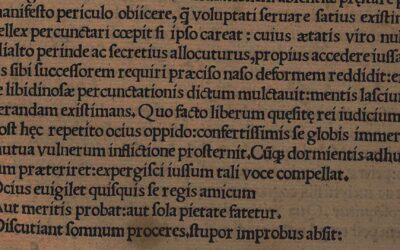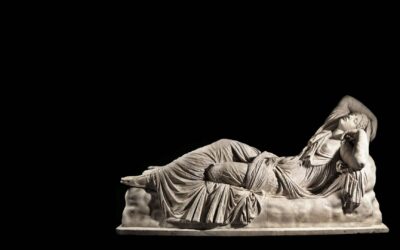
Framework
Global Presets UI Style Guide
01. Color palette
In this part of the style guide, you can modify each color inside the Text Module’s background settings. Use that same color code inside the Text Module below it to have a written version of the color code too. Use these color codes inside your Divi Theme Builder default color palette afterward.
#FFFFFF
#F9F9F9
#f2f2f2
#e0e0e0
#444444
#000000
#F9F9F9
#e0e0e0
#444444
#000000
02. Text styles
In the second part of this style guide wireframe, you can style your different text types. You’re also provided with a primary, secondary and tertiary option, each of which you can afterwards turn into individual presets.
Light centered
Light left
Dark centered
Dark left
Heading 1
Heading 1
Heading 1
Heading 1
Heading 2
Heading 2
Heading 2
Heading 3
Heading 3
Body
Lorem ipsum dolor sit amet, consectetur adipiscing elit, sed do eiusmod tempor incididunt ut labore et dolore magna aliqua. Ut enim ad minim veniam, quis nostrud exercitation ullamco laboris nisi ut aliquip ex ea commodo consequat.
List
- Lorum Ipsum
- Lorum Ipsum
- Lorum Ipsum
- Lorum Ipsum
- Lorum Ipsum
- Lorum Ipsum
- Lorum Ipsum
- Lorum Ipsum
- Lorum Ipsum
All in one
Heading 1
Heading 2
Heading 3
Heading 4
Lorum ipsum dolor sit amet.
- Lorum Ipsum
Heading 1
Heading 2
Heading 3
Heading 4
Lorum ipsum dolor sit amet.
- Lorum Ipsum
Heading 1
Heading 2
Heading 3
Heading 4
Lorum ipsum dolor sit amet.
- Lorum Ipsum
03. Modules
The last part of this style guide handles some of the most-used modules inside Divi. Here, we’re also providing you with a primary, secondary and tertiary version of each module which you can style and add as a global preset. Feel free to create more alternative designs for each module.
Primary
Secondary
Tertiary
Button
Blurb
Your Title Goes Here
Your content goes here. Edit or remove this text inline or in the module Content settings. You can also style every aspect of this content in the module Design settings and even apply custom CSS to this text in the module Advanced settings.
Your Title Goes Here
Your content goes here. Edit or remove this text inline or in the module Content settings. You can also style every aspect of this content in the module Design settings and even apply custom CSS to this text in the module Advanced settings.
Your Title Goes Here
Your content goes here. Edit or remove this text inline or in the module Content settings. You can also style every aspect of this content in the module Design settings and even apply custom CSS to this text in the module Advanced settings.
Email optin
Contact form
Image
Call to action
Your Title Goes Here
Your content goes here. Edit or remove this text inline or in the module Content settings. You can also style every aspect of this content in the module Design settings and even apply custom CSS to this text in the module Advanced settings.
Your Title Goes Here
Your content goes here. Edit or remove this text inline or in the module Content settings. You can also style every aspect of this content in the module Design settings and even apply custom CSS to this text in the module Advanced settings.
Your Title Goes Here
Your content goes here. Edit or remove this text inline or in the module Content settings. You can also style every aspect of this content in the module Design settings and even apply custom CSS to this text in the module Advanced settings.
Divider
Person
Name Goes Here
Position
Your content goes here. Edit or remove this text inline or in the module Content settings. You can also style every aspect of this content in the module Design settings and even apply custom CSS to this text in the module Advanced settings.
Name Goes Here
Position
Your content goes here. Edit or remove this text inline or in the module Content settings. You can also style every aspect of this content in the module Design settings and even apply custom CSS to this text in the module Advanced settings.
Name Goes Here
Position
Your content goes here. Edit or remove this text inline or in the module Content settings. You can also style every aspect of this content in the module Design settings and even apply custom CSS to this text in the module Advanced settings.
Social Media Follow
Toggle
Your Title Goes Here
Your content goes here. Edit or remove this text inline or in the module Content settings. You can also style every aspect of this content in the module Design settings and even apply custom CSS to this text in the module Advanced settings.
Your Title Goes Here
Your content goes here. Edit or remove this text inline or in the module Content settings. You can also style every aspect of this content in the module Design settings and even apply custom CSS to this text in the module Advanced settings.
Your Title Goes Here
Your content goes here. Edit or remove this text inline or in the module Content settings. You can also style every aspect of this content in the module Design settings and even apply custom CSS to this text in the module Advanced settings.
Testimonial
Your content goes here. Edit or remove this text inline or in the module Content settings. You can also style every aspect of this content in the module Design settings and even apply custom CSS to this text in the module Advanced settings.
Your content goes here. Edit or remove this text inline or in the module Content settings. You can also style every aspect of this content in the module Design settings and even apply custom CSS to this text in the module Advanced settings.
Your content goes here. Edit or remove this text inline or in the module Content settings. You can also style every aspect of this content in the module Design settings and even apply custom CSS to this text in the module Advanced settings.
Video
Accordion
Your Title Goes Here
Your content goes here. Edit or remove this text inline or in the module Content settings. You can also style every aspect of this content in the module Design settings and even apply custom CSS to this text in the module Advanced settings.
Your Title Goes Here
Your content goes here. Edit or remove this text inline or in the module Content settings. You can also style every aspect of this content in the module Design settings and even apply custom CSS to this text in the module Advanced settings.
Your Title Goes Here
Your content goes here. Edit or remove this text inline or in the module Content settings. You can also style every aspect of this content in the module Design settings and even apply custom CSS to this text in the module Advanced settings.
Your Title Goes Here
Your content goes here. Edit or remove this text inline or in the module Content settings. You can also style every aspect of this content in the module Design settings and even apply custom CSS to this text in the module Advanced settings.
Your Title Goes Here
Your content goes here. Edit or remove this text inline or in the module Content settings. You can also style every aspect of this content in the module Design settings and even apply custom CSS to this text in the module Advanced settings.
Your Title Goes Here
Your content goes here. Edit or remove this text inline or in the module Content settings. You can also style every aspect of this content in the module Design settings and even apply custom CSS to this text in the module Advanced settings.
Blog
Halloween special in Latin #8 – The procession of the Dead
A March of Condemned Souls This story is an exceptional episode from the Ecclesiastical History, written by the 12th-century monk Orderic Vitalis from the abbey of Saint Evroult in Normandy. More known for his records of political events and local news of the medieval…
How Catiline was defeated according to Sallust
Roman historian and politician, Gaius Sallustius Crispus, to many known as Sallust, wrote Bellum Catilinae or the War of Catiline around 42 B.C. as a chronicle of the conspiracy to overthrow the government by the aristocrat Lucius Sergius Catilina in 63 B.C. Bellum…
Halloween Special in Latin #7 – Frightful times at Froda
The Wonders of Fróðá In this year’s Halloween special in Latin, we will travel back in time to the Viking era and the summer when Christianity arrived in Iceland (i.e. around the year 1000). The story you are about to hear is based on the so-called Wonders…
The Day the Music Died: Alcibiades and the Tibiae
One of history’s most ardent collectors of curious notes, interesting texts, and odd passages, Aulus Gellius (c. 125–180 A.D.), relates quite an amusing story in his Noctes Atticae about the famous general Alcibiades. Alcibiades (c. 450–404 B.C.) was Greek, Athenian…
The Latin of Saxo Grammaticus
The Hunt for Saxo Shortly after the year 1208, Saxo Grammaticus put the finishing touches to his great history of Denmark, Gesta Danorum, ‘The Deeds of the Danes’. This work, written in a beautiful but idiosyncratic Latin, offers an abundance of stories about…
Dry jokes in Latin from the 16th Century
Did people “back in the day” have a sense of humour? Or, are jokes something new to mankind? Of course people have laughed throughout history, telling each other jokes and stories meant for laughter! However, what you’ve laughed at and considered funny has widely…
The Supine in Latin Grammar: What it is and What its Function is
Among Latin’s many verb forms, the supine, causes students quite a lot of confusion. In this article, I will explain in detail what the supine is, its meaning and how and when it is used. In Latin there are two types of supine, Supine I and Supine II. The first,…
Halloween special in Latin #6 – The Ring
Last year we went to France in the mid 1600’s for Halloween. This year we have turned to good old Swedish folktales to find our story. This year’s story has no date, no place, no names – which is quite common for tales of this kind: stories that have been told, and…
How not to waste time according to Seneca | Latin Book Club
Realizing that you’ve wasted time, that you’ve spent an entire afternoon doing something you can’t recall for instance, is nothing new to the modern world. In a letter from Seneca the younger he advices Lucilius Junior about time and how not to waste it. A very short…
Four Stories of Alexander the Great | Latin Book Club
Short introduction to the legends of Alexander the Great Alexander the Great was subject to an enormous amount of myth-building surrounding his life and his persona. According to one legend, for instance, Alexander was actually the son of Zeus (and therefore a god…
Halloween special in Latin #8 – The procession of the Dead
A March of Condemned Souls This story is an exceptional episode from the Ecclesiastical History, written by the 12th-century monk Orderic Vitalis from the abbey of Saint Evroult in Normandy. More known for his records of political events and local news of the medieval…
How Catiline was defeated according to Sallust
Roman historian and politician, Gaius Sallustius Crispus, to many known as Sallust, wrote Bellum Catilinae or the War of Catiline around 42 B.C. as a chronicle of the conspiracy to overthrow the government by the aristocrat Lucius Sergius Catilina in 63 B.C. Bellum…
Halloween Special in Latin #7 – Frightful times at Froda
The Wonders of Fróðá In this year’s Halloween special in Latin, we will travel back in time to the Viking era and the summer when Christianity arrived in Iceland (i.e. around the year 1000). The story you are about to hear is based on the so-called Wonders…
The Day the Music Died: Alcibiades and the Tibiae
One of history’s most ardent collectors of curious notes, interesting texts, and odd passages, Aulus Gellius (c. 125–180 A.D.), relates quite an amusing story in his Noctes Atticae about the famous general Alcibiades. Alcibiades (c. 450–404 B.C.) was Greek, Athenian…
The Latin of Saxo Grammaticus
The Hunt for Saxo Shortly after the year 1208, Saxo Grammaticus put the finishing touches to his great history of Denmark, Gesta Danorum, ‘The Deeds of the Danes’. This work, written in a beautiful but idiosyncratic Latin, offers an abundance of stories about…
Dry jokes in Latin from the 16th Century
Did people “back in the day” have a sense of humour? Or, are jokes something new to mankind? Of course people have laughed throughout history, telling each other jokes and stories meant for laughter! However, what you’ve laughed at and considered funny has widely…
The Supine in Latin Grammar: What it is and What its Function is
Among Latin’s many verb forms, the supine, causes students quite a lot of confusion. In this article, I will explain in detail what the supine is, its meaning and how and when it is used. In Latin there are two types of supine, Supine I and Supine II. The first,…
Halloween special in Latin #6 – The Ring
Last year we went to France in the mid 1600’s for Halloween. This year we have turned to good old Swedish folktales to find our story. This year’s story has no date, no place, no names – which is quite common for tales of this kind: stories that have been told, and…
How not to waste time according to Seneca | Latin Book Club
Realizing that you’ve wasted time, that you’ve spent an entire afternoon doing something you can’t recall for instance, is nothing new to the modern world. In a letter from Seneca the younger he advices Lucilius Junior about time and how not to waste it. A very short…
Four Stories of Alexander the Great | Latin Book Club
Short introduction to the legends of Alexander the Great Alexander the Great was subject to an enormous amount of myth-building surrounding his life and his persona. According to one legend, for instance, Alexander was actually the son of Zeus (and therefore a god…
Halloween special in Latin #8 – The procession of the Dead
A March of Condemned Souls This story is an exceptional episode from the Ecclesiastical History, written by the 12th-century monk Orderic Vitalis from the abbey of Saint Evroult in Normandy. More known for his records of political events and local news of the medieval…
How Catiline was defeated according to Sallust
Roman historian and politician, Gaius Sallustius Crispus, to many known as Sallust, wrote Bellum Catilinae or the War of Catiline around 42 B.C. as a chronicle of the conspiracy to overthrow the government by the aristocrat Lucius Sergius Catilina in 63 B.C. Bellum…
Halloween Special in Latin #7 – Frightful times at Froda
The Wonders of Fróðá In this year’s Halloween special in Latin, we will travel back in time to the Viking era and the summer when Christianity arrived in Iceland (i.e. around the year 1000). The story you are about to hear is based on the so-called Wonders…
The Day the Music Died: Alcibiades and the Tibiae
One of history’s most ardent collectors of curious notes, interesting texts, and odd passages, Aulus Gellius (c. 125–180 A.D.), relates quite an amusing story in his Noctes Atticae about the famous general Alcibiades. Alcibiades (c. 450–404 B.C.) was Greek, Athenian…
The Latin of Saxo Grammaticus
The Hunt for Saxo Shortly after the year 1208, Saxo Grammaticus put the finishing touches to his great history of Denmark, Gesta Danorum, ‘The Deeds of the Danes’. This work, written in a beautiful but idiosyncratic Latin, offers an abundance of stories about…
Dry jokes in Latin from the 16th Century
Did people “back in the day” have a sense of humour? Or, are jokes something new to mankind? Of course people have laughed throughout history, telling each other jokes and stories meant for laughter! However, what you’ve laughed at and considered funny has widely…
The Supine in Latin Grammar: What it is and What its Function is
Among Latin’s many verb forms, the supine, causes students quite a lot of confusion. In this article, I will explain in detail what the supine is, its meaning and how and when it is used. In Latin there are two types of supine, Supine I and Supine II. The first,…
Halloween special in Latin #6 – The Ring
Last year we went to France in the mid 1600’s for Halloween. This year we have turned to good old Swedish folktales to find our story. This year’s story has no date, no place, no names – which is quite common for tales of this kind: stories that have been told, and…
How not to waste time according to Seneca | Latin Book Club
Realizing that you’ve wasted time, that you’ve spent an entire afternoon doing something you can’t recall for instance, is nothing new to the modern world. In a letter from Seneca the younger he advices Lucilius Junior about time and how not to waste it. A very short…
Four Stories of Alexander the Great | Latin Book Club
Short introduction to the legends of Alexander the Great Alexander the Great was subject to an enormous amount of myth-building surrounding his life and his persona. According to one legend, for instance, Alexander was actually the son of Zeus (and therefore a god…






















